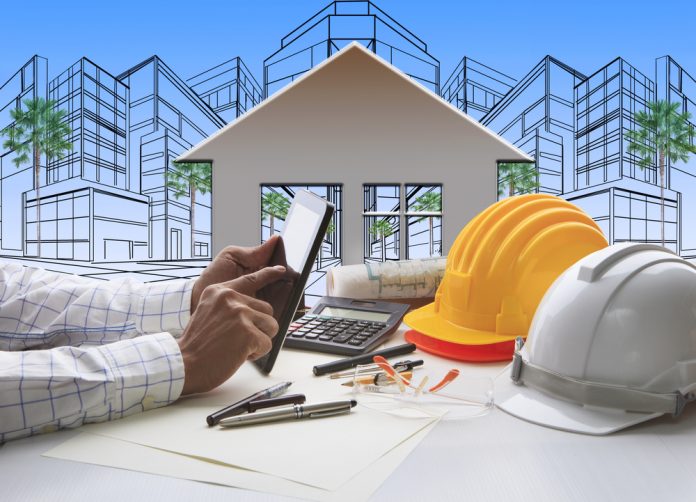In every industry, the steady development of new technology creates more opportunities for innovation and efficiency. Within the world of construction, high-tech programs and inventions often reduce the possibilities of human error. Also, the automation of many steps in production dramatically increases output potential.
In turn, the construction industry is booming. Projections show continuous growth in output over the next ten years. Within this flourishing market, construction companies need to take advantage of tech developments to stay competitive. The incorporation of technology also allows companies to take on larger projects or manage more projects at once.
In 2020, many businesses will embrace the following technology trends:
1. Cost Estimating Software
Cost estimating software allows contractors to project costs for individual projects. The software increases accuracy and efficiency in the otherwise tedious cost estimation process, saving both time and money.
Also known as construction bidding software, cost estimating software helps estimators calculate material and labor costs. It also lets contractors produce detailed, professional proposals from the estimates. In today’s competitive market, this software bolsters contractors’ chances of winning projects, especially when it comes to fixed-bid work.
Cost estimation software capabilities include:
- Predicting accurate construction price per square foot to build a house by zip code
- Creating precise and professional-looking bid proposals
- Providing a set of commonly required parts and labor for standard jobs, such as a bathroom remodel
- Storing information on material and labor costs to reference later on
- Displaying graphical views of a building assembly to help visualize portions of the project
- Storing all projects (including related materials and labor cost estimates) in a database
- Creating cost breakdown reports using charts and graphs to improve the analysis of project costs
2. Artificial Intelligence
Artificial intelligence (AI) has radically transformed the construction industry. Its adoption has helped companies reduce costs and improve safety at every stage of development.
Today, machines can imitate human cognitive tasks, such as pattern recognition, and can solve problems independently. Fed with enough data, these systems “understand” more and more of their field of activity.
Advantages of AI in the construction industry:
- Artificial neural networks help predict cost overruns
- Forecast models calculate realistic time constraints for project control
- With AI training materials available online, employees can access new know-how instantly. Workers can also train quicker and more efficiently.
- Easy analysis and prioritization of the numerous risk factors
- Addressing labor shortage
- Progress regulation
- Data collection and analysis
3. Mobile Technology
Mobile technology has become increasingly popular among construction managers. Phone and tablet applications allow for real-time inspections and onsite accountability. For example, construction professionals can now measure spaces with just a smartphone camera.
Most importantly, mobile technology allows managers to get work done directly onsite. Rather than having to take notes and return to the office to make changes, they can edit blueprints right from their phones using mobile data.
4. Drones and Robotics
Drones and robotics give contractors and managers new physical capabilities. For example, drones can help with surveying, data collection, and assessing structural damage. Drones can also provide security for job sites, can track equipment location, and provide remote monitoring for managers offsite.
The use of robots, particularly when it comes to menial and repetitive tasks, improves overall production efficiency and can reduce the risk of employee injury. What jobs can robots fulfill? Right now, robots primarily service the actual production of materials. However, some larger companies have brought robots to job sites. They typically perform tasks like bricklaying and concrete dispensing.
5. Virtual/Augmented Reality
This technology helps architects and construction teams improve projects and identify design errors before any physical production begins. Three-dimensional designs and gesture interaction take blueprinting to a whole new level. This is especially useful when you are constructing for the elderly. An assisted living construction that is free from design flaws is safer and more comfortable to live in.
AR and VR can benefit the construction industry in the following ways:
- This technology helps workers and service engineers virtually see through walls.
- AR and VR improve safety training through hazard simulations.
- 3D modeling of buildings and structures allows for clear visualization both at small-scale and large-scale perspectives.
By adopting one or more of these technology trends, construction companies can see their profits grow significantly. Not only does the adoption of advanced construction technology increase efficiency, but it also builds trust with clients. While purchasing new hardware and software may cost a lot up front, the investment almost always pays off. Accuracy and efficiency ultimately lower costs and save time, allowing your business to move on to new projects quickly.
Find a Home-Based Business to Start-Up >>> Hundreds of Business Listings.

















































